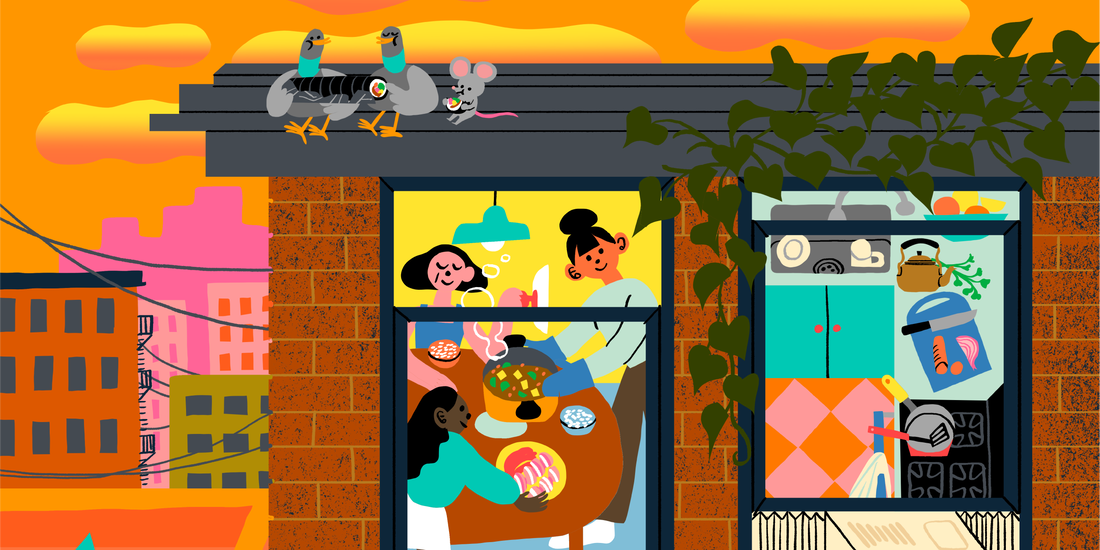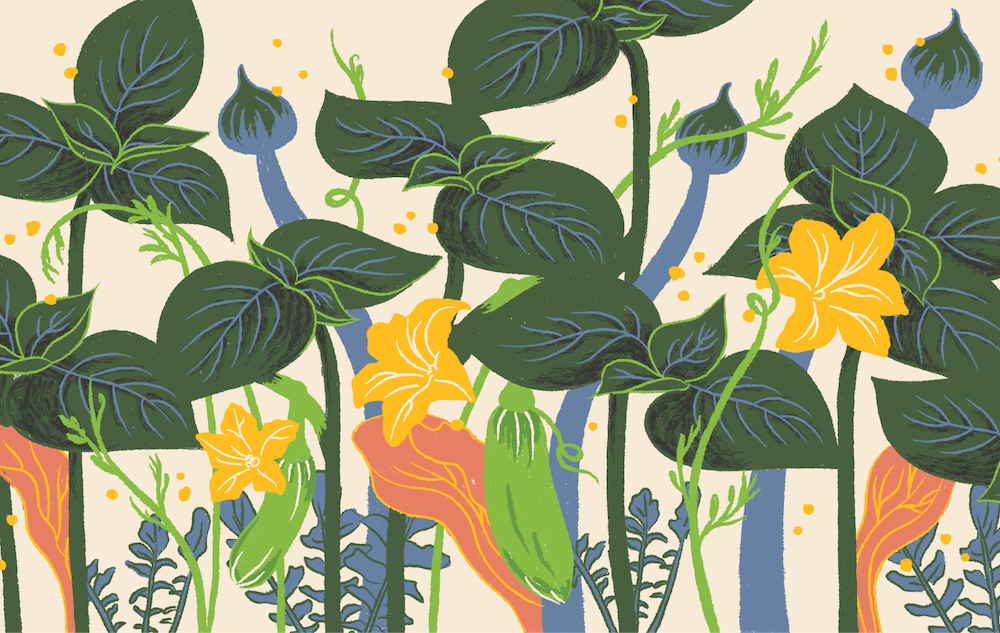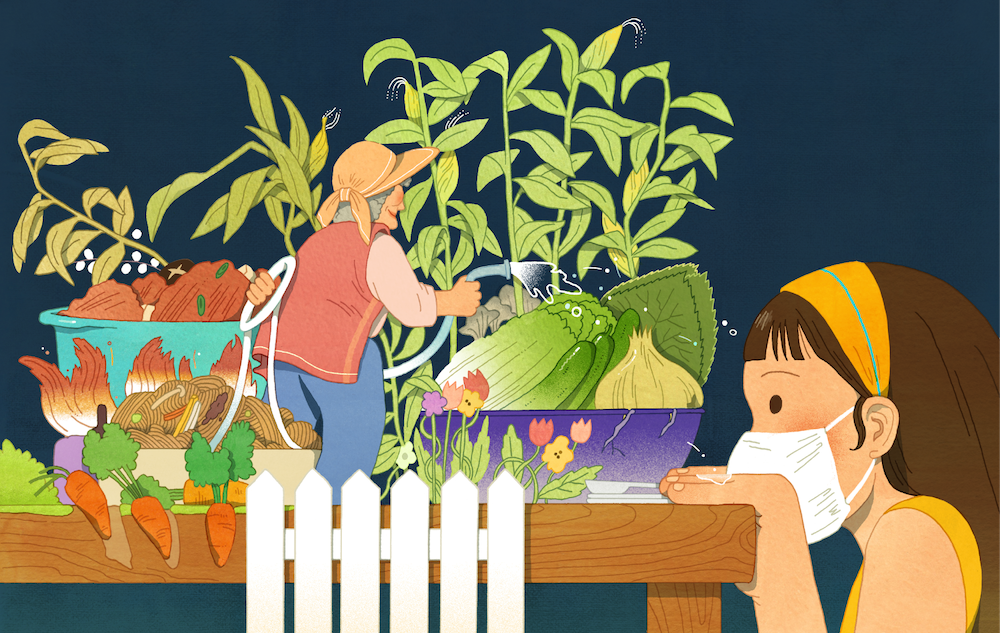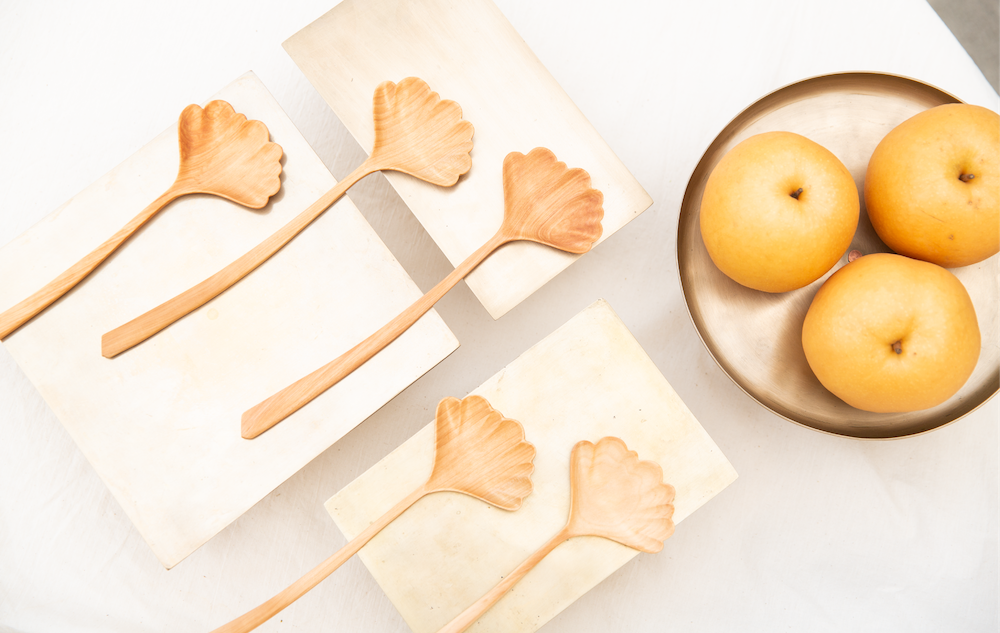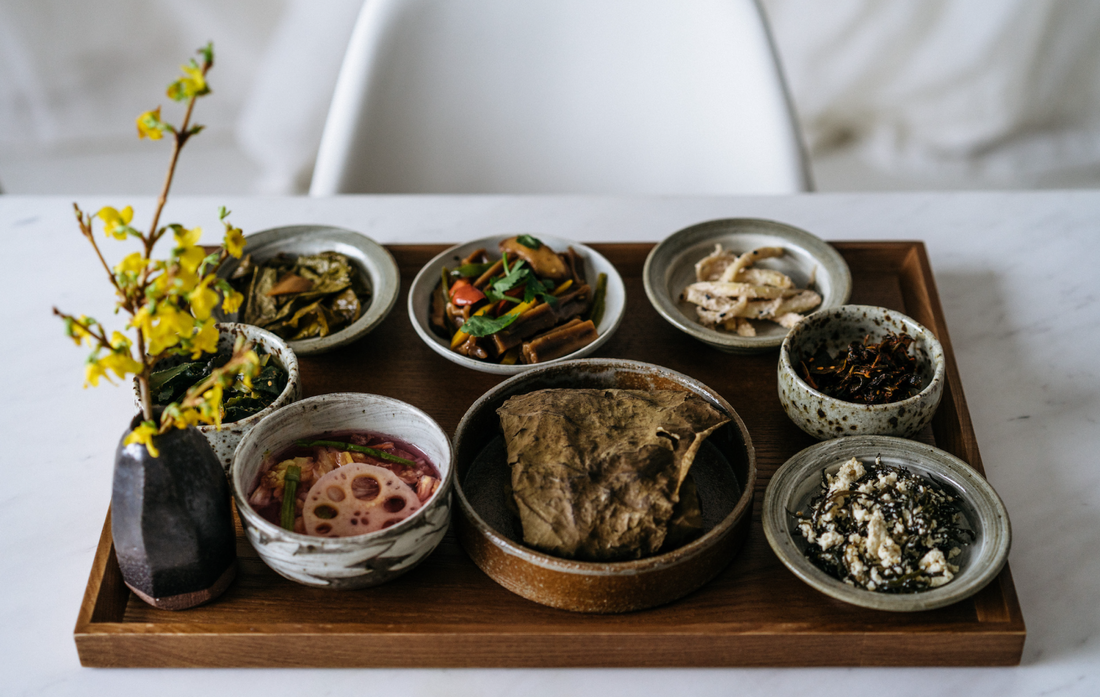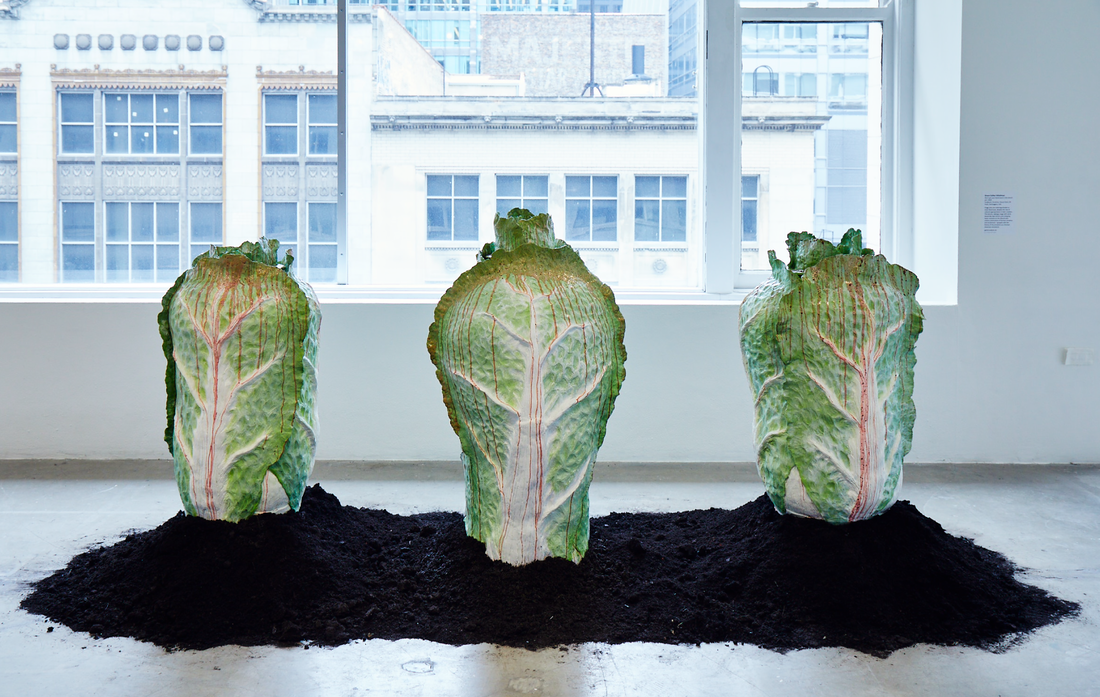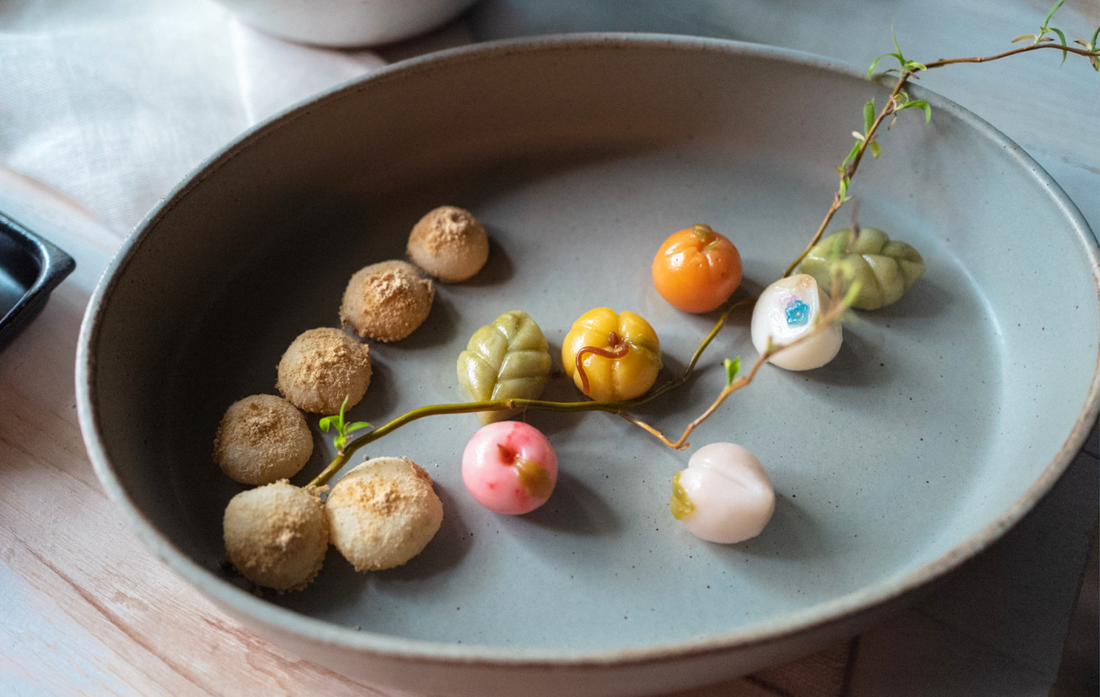For choa’s second volume, we share the experiences of the Korean diaspora residing on Turtle Island (North America). We ground this volume with thanks for their labour and the relationships that allow us to enjoy the food on our tables. These stories and this volume are possible because of the abundant care of the traditional and present keepers of this land. Continued.
VOLUME 2 | 2021
Jip-bab means a home-cooked meal. It evokes familial warmth, home, care, and emotional nourishment.
Who are the people growing, producing, and cleaning up our food? Will we be able to continue to enjoy the dishes as we know them, given the impacts of the climate crisis on different crops? What presence does jip-bab have in our daily lives, and what is its role in this world we share? For our second volume, we explore aspects of the labour and the communities that allow us to enjoy the warmth and emotional nourishment of jip-bab. We continue to reflect on the ways we impact and are impacted by the climate crisis in our day-to-day lives.
집밥은 '집'의 따뜻함과 '밥'의 정서적인 음식이 결합된 복합적인 의미를 지닙니다. 우리 밥상을 구성하는 작물들은 누가 만들고 유통할까요? 기후 위기가 농작물에 미치는 영향이 커지면서, 우리가 오랜 시간 동안 즐겨 온 음식들이 미래에도 여전히 존재할 수 있을까요? '집밥'은 우리에게 어떤 존재이며, 더불어 사는 세상에서 어떤 역할을 할까요? <초아>의 2호에서는 우리의 일상에 영향을 미치는 기후 위기를 고려하여 집밥의 노동과 정서적인 상징성에 대한 다양한 측면을 살펴봅니다.
Who are the people growing, producing, and cleaning up our food? Will we be able to continue to enjoy the dishes as we know them, given the impacts of the climate crisis on different crops? What presence does jip-bab have in our daily lives, and what is its role in this world we share? For our second volume, we explore aspects of the labour and the communities that allow us to enjoy the warmth and emotional nourishment of jip-bab. We continue to reflect on the ways we impact and are impacted by the climate crisis in our day-to-day lives.
집밥은 '집'의 따뜻함과 '밥'의 정서적인 음식이 결합된 복합적인 의미를 지닙니다. 우리 밥상을 구성하는 작물들은 누가 만들고 유통할까요? 기후 위기가 농작물에 미치는 영향이 커지면서, 우리가 오랜 시간 동안 즐겨 온 음식들이 미래에도 여전히 존재할 수 있을까요? '집밥'은 우리에게 어떤 존재이며, 더불어 사는 세상에서 어떤 역할을 할까요? <초아>의 2호에서는 우리의 일상에 영향을 미치는 기후 위기를 고려하여 집밥의 노동과 정서적인 상징성에 대한 다양한 측면을 살펴봅니다.
"Much like the tiny corner of a cityscape, we are just scratching the surface of jip-bab. There are many aspects and people who go unseen and unnamed when we talk about what allows us to have such an emotional experience with food."
Founders Harriet Kim and Mirae Lee share their jip-bab reflections, from namu to perilla leaves.
With cover art by Subin Yang
Founders Harriet Kim and Mirae Lee share their jip-bab reflections, from namu to perilla leaves.
With cover art by Subin Yang
|
Kristyn Leach on Incorporating Community Care, Seed Saving, and Peasant-led Movements in Her Farming
"The beautiful thing about seeds are that it's not like other objects that we receive as heirlooms. They are living beings." Interview by Harriet Kim |
|
Welcome Home
"Every week, or even a couple of times a week, we receive calls from our favourite place to dine—the one run by my halmoni." Non-Fiction by Michelle Kim Illustration by Sena Kwon |
|
Diana Ryu on Starting a Business During a Pandemic, Honouring the Imperfect Gifts of Trees, and Highlighting the Stories of Korean Artistry
"It’s very much about celebrating imperfection and the organic shapes that nature has gifted us." Interview by Harriet Kim & Mirae Lee |
|
A Winding Path
"I always took care to say that I was sharing it as someone who is also learning about it. This is my attempt at creating a meal using the principles and mindset I learned from temple food masters." Photos & Text by Mina Park |
|
Don't get your hand stuck in the kimchi jar!
"The cabbages were the start of my mission to create art that I would have wanted to see while growing up as a mixed non-binary kid—art that feels like home." Artwork & Text by Grace Gittelman |
|
Steamed with Love: Sharing the Beauty of Tteok
"Creating rice cakes gives me the chance to have deep conversations with others, exchange wisdom and advice, and create a sense of community." Text by Jennifer Ban |


